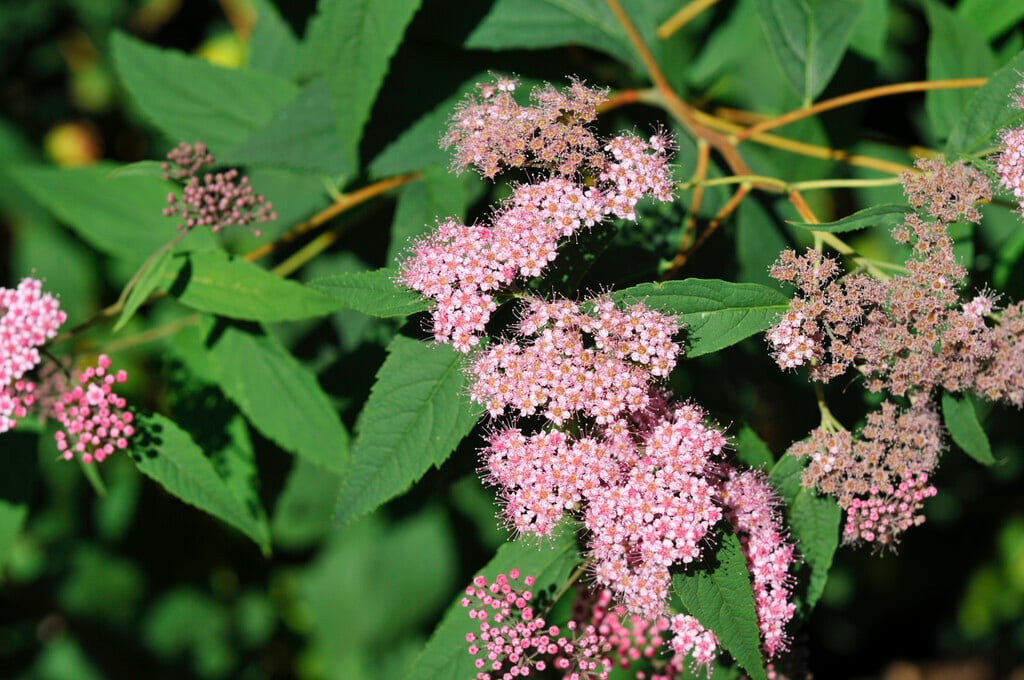Spiraea tomentosa
steeplebush
Vigorous, deciduous, suckering shrub about 1.2m tall, forming a thicket of upright browish stems, felted when young, with yellowish-green leaves, grey-felted beneath. Purplish-pink flowers in dense, terminal panicles, appear during late summer

Size
Ultimate height
1–1.5 metresTime to ultimate height
5–10 yearsUltimate spread
1–1.5 metresGrowing conditions
Moisture
Moist but well–drained, Well–drainedpH
Acid, Alkaline, NeutralColour & scent
| Stem | Flower | Foliage | Fruit | |
| Spring | Yellow Green Grey Silver | |||
|---|---|---|---|---|
| Summer | Purple Pink | Yellow Green Grey Silver | ||
| Autumn | Yellow Grey Silver | |||
| Winter |
Position
- Full sun
- Partial shade
Aspect
East–facing or South–facing or West–facing
Exposure
Exposed or Sheltered Hardiness
H6Botanical details
- Family
- Rosaceae
- Native to GB / Ireland
- No
- Foliage
- Deciduous
- Habit
- Suckering
- Genus
Spiraea are deciduous shrubs, sometimes suckering, with simple leaves and short racemes, panicles or corymbs of small, 5-petalled white or pink flowers in spring or summer
- Name status
Correct
How to grow
Cultivation
Grow in moist but well-drained soil in full sun or light shade
Propagation
Propagate by division in late autumn or early spring
Suggested planting locations and garden types
- Cottage and informal garden
- Wildlife gardens
- Flower borders and beds
- Hedging and screens
Pruning
Pruning group 6 for spiraea flowering on current years stems, deadhead after flowering. Keep neat and compact by cutting all stems back to within 30cm of ground level
Pests
Generally pest-free
Diseases
Generally disease-free but may be susceptible to honey fungus
Love gardening
Sign up to receive regular gardening tips, inspiration, offers and more
View our Privacy Policy
Get involved
The Royal Horticultural Society is the UK’s leading gardening charity. We aim to enrich everyone’s life through plants, and make the UK a greener and more beautiful place.